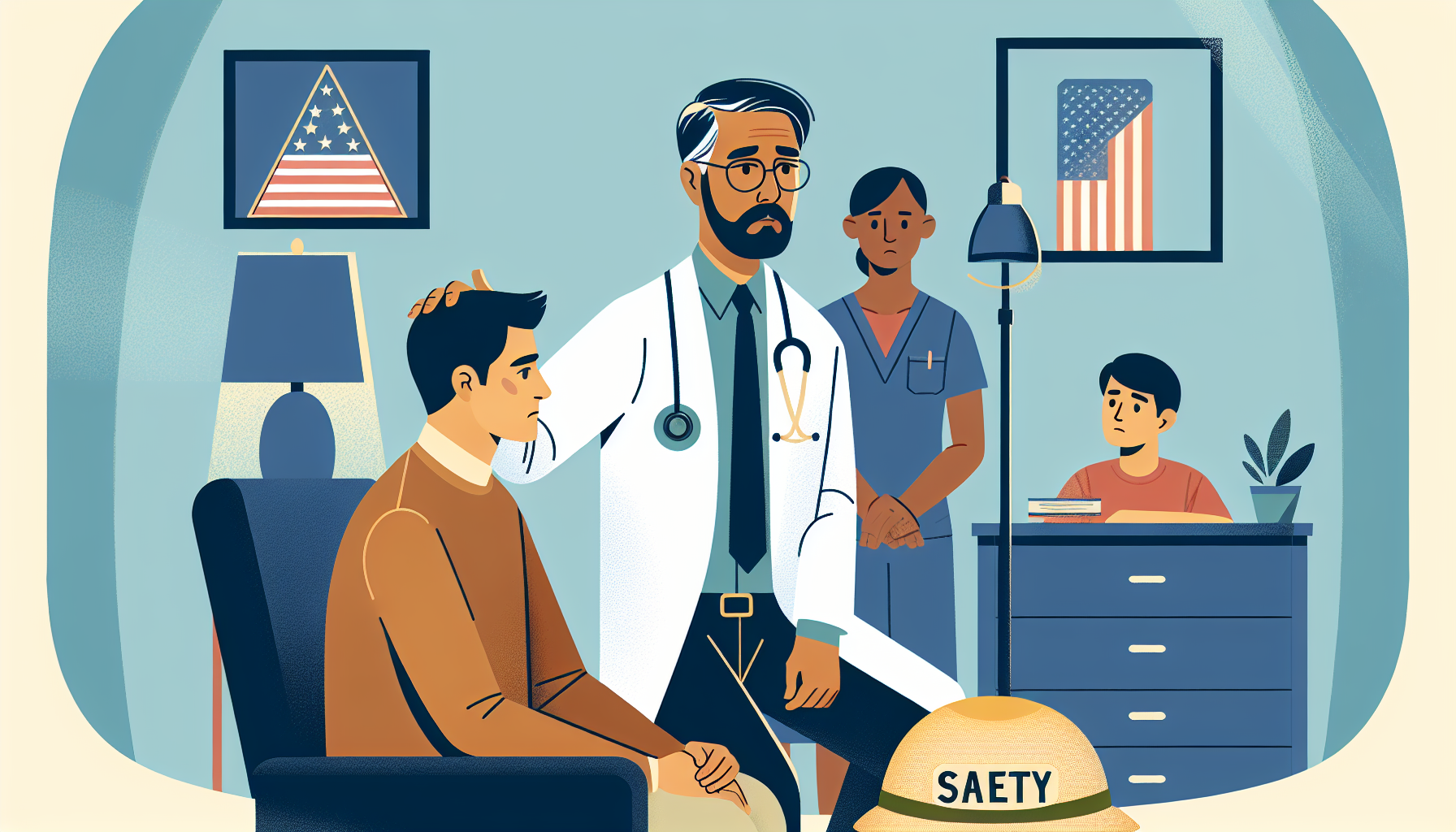Definition
The General Rating Formula for Mental Disorders is a standardized system used by the Department of Veterans Affairs (VA) to evaluate and assign disability ratings to veterans with service-related mental health conditions, such as PTSD, anxiety, or depression. It consists of a range of ratings percentages (0%, 10%, 30%, 50%, 70%, or 100%) based on the severity of the mental disorder and its impact on the veteran’s ability to function in daily life, work, and social settings. The assigned rating determines the level of disability compensation offered to the veteran.
Key Takeaways
- The General Rating Formula for Mental Disorders is a set of guidelines used by the Department of Veterans Affairs (VA) to evaluate the severity of a veteran’s service-connected mental condition and determine the appropriate level of disability compensation.
- The formula considers the impact of mental disorders on a veteran’s occupational and social functioning, assigning a percentage rating that ranges from 0% (minimal symptoms) to 100% (total occupational and social impairment).
- Password Assistance through the VA benefits platform can assist by giving a visual and mental performance scale in which veterans with mental disabilities can better understand their benefits and entitlements that they are eligible to receive.
Importance
The General Rating Formula for Mental Disorders is important because it ensures that veterans receive appropriate disability compensation for mental health conditions related to their military service.
This standardized formula assesses the severity of mental health disorders, such as post-traumatic stress disorder, anxiety, or depression, and determines the appropriate level of disability benefits for impacted veterans.
By providing a consistent method for evaluating mental health conditions, the General Rating Formula for Mental Disorders promotes fairness and accuracy in the allocation of VA benefits to support the well-being and care for those who have served their country.
Explanation
The General Rating Formula for Mental Disorders serves a crucial purpose within the context of the U.S. Department of Veterans Affairs’ (VA) benefits system. Specifically, this formula offers a standardized, objective, and transparent method for assessing the severity of a veteran’s mental health condition and its impact on their daily life.
In essence, the goal of this formula is to accurately determine the appropriate level of benefits and support that a veteran should receive, based on the extent to which their mental health challenges interfere with their overall social and occupational functioning. This system ensures that the VA administers benefits equitably to all veterans facing mental disorders and that the assistance provided to them is proportional to the level of their needs. To achieve this purpose, the General Rating Formula for Mental Disorders categorizes veterans into several percentage levels (0%, 10%, 30%, 50%, 70%, and 100%), reflecting the degree to which their mental conditions impact their daily lives.
This categorization takes into consideration various aspects of a veteran’s mental well-being, such as cognitive abilities, emotional control, social interaction, symptoms severity, and the ability to engage in self-care, among others. By evaluating a veteran’s mental health based on these criteria, the VA can determine the appropriate monetary benefits, medical care, and other resources they should receive for their specific needs and circumstances. This comprehensive assessment process ultimately ensures that veterans have access to appropriate support services and resources as they re-adjust to civilian life after serving the nation.
Examples of General Rating Formula for Mental Disorders
The General Rating Formula for Mental Disorders is used by the Department of Veteran Affairs (VA) to determine the level of disability compensation for veterans who have service-connected mental health conditions, such as Post-Traumatic Stress Disorder (PTSD), Anxiety, or Depression. The formula measures the severity of the mental disorder and how it affects a veteran’s daily functioning. Here are three real-world examples demonstrating the application of this formula:
A veteran diagnosed with PTSD after experiencing combat-related trauma is struggling with flashbacks, nightmares, and difficulty in social and occupational aspects of life. Based on the General Rating Formula for Mental Disorders, the VA might rate the veteran’s PTSD at 70% disability due to symptoms like difficulties in relationships, maintaining employment, and frequent panic attacks or episodes of emotional distress.
A veteran is experiencing severe depression since leaving military service and is unable to perform most daily activities without assistance. They are often disoriented and are facing major memory problems. Based on the severity of their limitations in daily life, the VA may assign a disability rating of 100% for their mental health condition following the General Rating Formula for Mental Disorders.
Another veteran displaying mild symptoms of anxiety after service may struggle with occasional bouts of nervousness, difficulty sleeping, and maintaining close relationships. Their condition may only have a moderate impact on their overall daily functioning. In this case, the VA may assign a disability rating of 30% according to the General Rating Formula for Mental Disorders.In each example, the veteran’s disability rating would be used to determine the monthly compensation they are eligible to receive from the VA to help compensate for the impact of their service-connected mental disorder on their life.
FAQs: General Rating Formula for Mental Disorders
What is the General Rating Formula for Mental Disorders?
The General Rating Formula for Mental Disorders is a set of criteria used by the Department of Veterans Affairs (VA) to evaluate service-connected mental health conditions and determine the appropriate level of disability compensation for affected veterans. This rating system is designed to consider the varying degrees of severity and functional impairment caused by mental disorders, such as depression, anxiety, or post-traumatic stress disorder.
How does the VA evaluate mental disorders using this formula?
The VA evaluates mental disabilities using a rating schedule that ranges from 0% to 100% in increments of 10%. The General Rating Formula for Mental Disorders serves as a guiding tool for assessing the severity of a veteran’s condition, based on factors such as occupational and social impairment. As the level of disability increases, so does the percentage of the assigned rating and the corresponding compensation.
What specific factors and symptoms are considered in this rating formula?
The General Rating Formula for Mental Disorders takes into account both occupational and social impairment due to the mental condition. This includes factors such as difficulty in maintaining relationships, reduced productivity at work, memory impairment, suicidal ideation, and episodes of panic or depression. Other factors, such as the frequency and severity of symptoms, overall adaptation to daily life, and the need for medication or therapy, may also be considered.
Does the rating formula apply to all types of mental disorders?
Yes, the General Rating Formula for Mental Disorders applies to all service-connected mental health conditions that are evaluated by the VA. This includes, but is not limited to, conditions such as anxiety, depression, post-traumatic stress disorder, schizophrenia, and bipolar disorder.
How can a veteran’s mental disorder rating be increased or decreased?
If a veteran believes that their disability rating does not accurately reflect their current level of impairment, they can request a re-evaluation by providing new evidence or information. The VA may increase or decrease the rating based on the available evidence, the severity of the condition, or any changes in the veteran’s mental health status. It is also important to note that ratings can be subject to routine future examinations to ensure that the level of compensation accurately reflects the degree of disability.
Related VA Benefit Terms
- Disability Evaluation System
- Diagnostic and Statistical Manual of Mental Disorders (DSM-5)
- Global Assessment of Functioning (GAF) scale
- Compensation and Pension (C&P) examination
- Service connection for mental disorders
Sources for More Information
- U.S. Department of Veterans Affairs (VA)
- National Veterans Legal Services Program (NVLSP)
- VA Benefits Department
- DisabledVeterans.org
 Benefits.com Advisors
Benefits.com Advisors
With expertise spanning local, state, and federal benefit programs, our team is dedicated to guiding individuals towards the perfect program tailored to their unique circumstances.
Rise to the top with Peak Benefits!
Join our Peak Benefits Newsletter for the latest news, resources, and offers on all things government benefits.




















